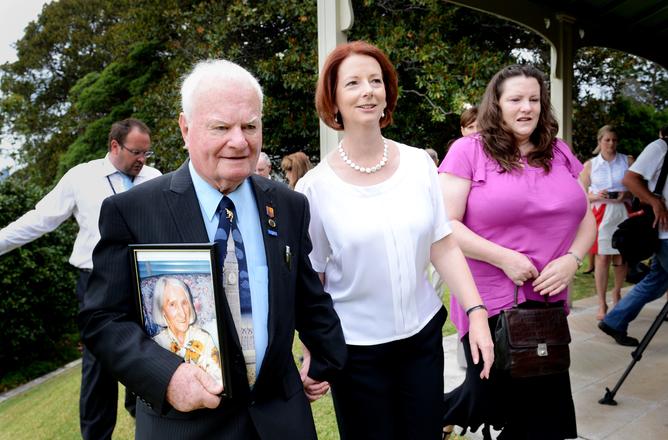Royal Commission Has the Power to Bring Justice to Victims of Sexual Abuse
By Judy Courtin
[terms of reference - Royal Commission into Institutional Responses to Child Sexual Abuse] The terms of reference for the Royal Commission into Institutional Responses to Child Sex Abuse, as announced by the prime minister on Friday, certainly seem to tick all the right boxes if survivors and victims are to receive justice. The very broad ranging terms of reference and powers of the commission, which is to be headed by the Justice Peter McLellan, are capable of capturing and addressing the reasons the commission was called. While interviewing victims of abuse and their families for my research, I asked them what they would require to attain justice. One emphatic and universal response was that the truth be told. This “truth”, forcibly pushed into retreat and suppressed for so long, now has the opportunity to be welcomed and validated. This first element of acquiring justice is imperative. Another requisite element for justice is accountability. This is not only for the original sex crimes but also the subsequent crimes of concealment by the hierarchy of the Catholic Church and other organisations which enabled perpetrators to roam free and sexually assault or rape thousands of children. Prosecutions of sex offenders and those guilty of concealment or cover-up, are made possible by the commission’s power to establish investigation units, which can gather evidence and prepare briefs for, and liaise with, the police. Although the commission itself cannot prosecute, the early establishment of these units means this important work in bringing about accountability can commence quite soon. This is unlike the Irish Ryan Commission where prosecutions were excluded from its remit. The other issue underpinning the calls for a royal commission is the disturbingly high number of suicides and premature deaths of people who had been sexually assaulted by Catholic clergy and those in other organisations. In making its recommendations, the commission must have regard to “the experiences of people directly and indirectly affected by child sexual abuse and related matters” in institutions. This term of reference can unquestionably incorporate suicides and premature deaths, giving families and loved ones the opportunity to testify. This is imperative for several reasons. These families deserve justice and an explanation. Also, the original investigations of these suicides by the coroner would have been fettered, and the findings skewed, in that the common thread of childhood sexual assault may not have been revealed, or even known by the family. The commission also needs to determine the incidence of clergy abuse-related suicides and premature deaths in Australia. With 40-50 such suicides stemming from a five-year cohort of children in one Catholic primary school in regional Victoria, this issue calls for urgent attention. The next vital issue to be addressed if victims and survivors are to receive justice, is that they have equal access to the laws relating to litigating or suing, especially organisations such as the Catholic Church. This would involve amending the Property Trust Acts of the church and the Statute of Limitations legislation. This will not guarantee victims’ success, but at least they will have the option of going down that path. The commission itself does not have the power to make these legislative changes, but it is directed to have regard to these matters when writing its recommendations. Another fundamental element for victims and survivors attaining justice is that these crimes don’t happen again. Future protection of other children is of paramount importance. The commission has no discretion in that it must have regard to any changes in laws, policies, practices and systems that will protect children in the future. Finally, the elephant in the room is the issue of compensation. This prickly topic must be faced head on. Monetary compensation is non-negotiable for the victims and survivors of these hideous institutional crimes. Around 1000 to 2000 victims who have been through the Catholic Church’s internal complaints processes have received some compensation, many calling it silence money. The amounts received are paltry, insulting and far below what could be expected in a court of law. Most of these people have signed confidentiality agreements that also prohibit them from suing again. The commission will have the necessary and far-reaching powers, if it thinks fit, to override these church confidentiality agreements. This is very important, as my research has found that Melbourne Response and Towards Healing have overwhelmingly exploited these already vulnerable victims with many of them accepting below par compensation amounts. The final success of this royal commission will necessarily depend not only on its recommendations, but the subsequent adoption of these recommendations by future governments. Victims and families, despite decades of being cast aside by governments, the church and sometimes the police, have stoically maintained their courage, integrity and their truth. To date, they have won a great battle. Last week’s announcement by the prime minister was a testament to this ongoing victory.
|
.
Any original material on these pages is copyright © BishopAccountability.org 2004. Reproduce freely with attribution.
